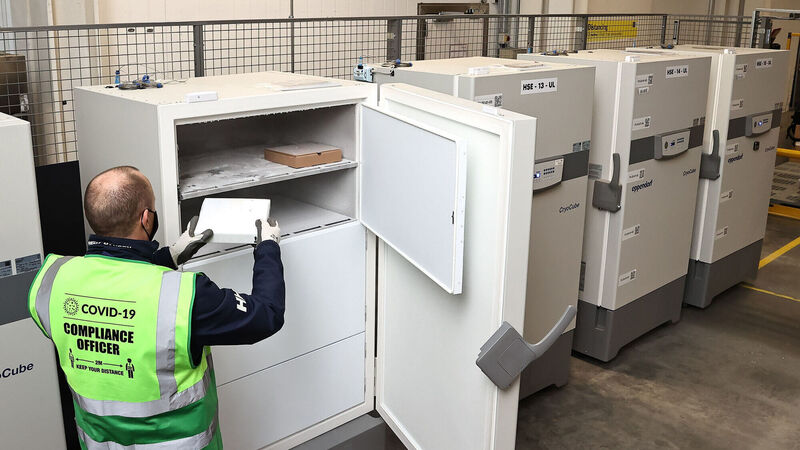Covid-19: Vaccines to start tomorrow but officials warn of expected 'large increase' in cases

Handout photo of the first doses of the Pfizer/BioNTech vaccine arriving in the Republic of Ireland in recent days. Picture: Marc O'Sullivan/PA Wire
The first Covid-19 vaccinations will be rolled out tomorrow, a day earlier than originally planned, the head of the HSE has confirmed.
The news will come as welcome relief, as the number of new cases has been increasing sharply and is expected to continue to do so for the coming days.










